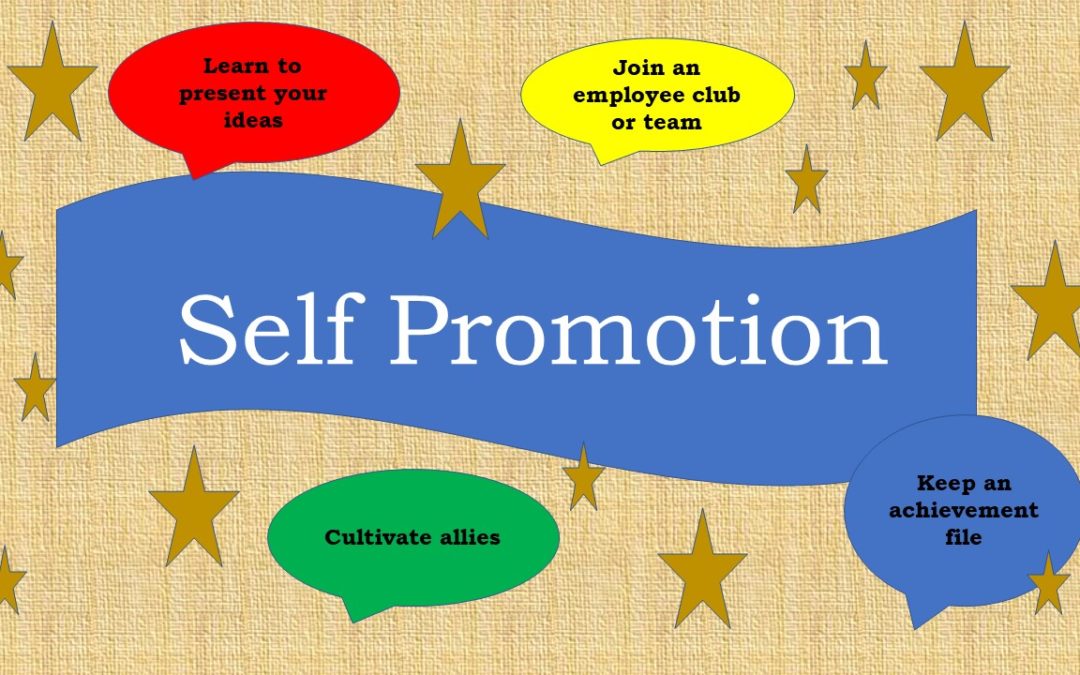There is no point at which you can say, “Well, I’m successful now. I might as well take a nap.”
Carrie Fisher, Author and Actress
Hello, and welcome to Part Two of my two-part blog on How to be your own publicist. In part One, I covered the first four of eight quick, easy, and totally doable methods for marketing yourself. Ready to continue? Here we go…
5. Learn to present your ideas
You don’t need to be a professional speaker to get ahead in your career, but you do need to be able to communicate your ideas—and sometimes to people who intimidate you. If you want to move ahead, it’s important to learn how to speak in front of anyone. Start by looking for a Toastmasters International club in your area. This public speaking training organization has been going since 1924, and now has more than 16,800 clubs with 358,000 members in approximately 143 countries! There are local meetings all over the world and you can easily join in on one. (Visit www.toastmasters.org for more information.)
You can also videotape yourself giving a presentation. Amy, a friend of mine, had the opportunity to give a presentation to the vice president in charge of new development at her company. Although she’d taken a speech class in college, it had been a long time since Amy had spoken formally. So she asked a coworker to record a run-through of her presentation—always a good idea, and one that I use all the time, even though I’m a professional speaker.
Amy was amazed at how much she learned from the recording. The flaws in her presentation style were immediately apparent. And they were things Amy could change without too much effort. She could get a new haircut so she wouldn’t keep pushing her bangs out of her eyes. She could stop tilting her head to the right when she wanted the audience to believe her. She could look less stern when she was trying to be sincere.
Today, Amy is the manager of her own department—and she swears that her position stems (at least in part) from the presentation she gave to the vice president. She vows that being recorded was one of the most valuable experiences of her career.
One more tip. With PowerPoint now routinely being used as a speech-giving accessory, it’s also important to learn about this amazingly user-friendly presentation software. If you don’t have PowerPoint, get it and learn how to construct powerful presentations with graphics, charts, and photos. You can download a free trial at www.microsoft.com.
6. Keep an achievement file
Make it a priority to keep a current file of positive reviews, thank you letters from satisfied clients, “you rock” notes from colleagues, copies of invoices for important sales, and any other tokens of personal business victories. Such items certainly serve as ammunition when you approach your boss about a raise or promotion. But they are also good when you need a quick pick-me-up to keep motivated on a less-than-great day. Keep the file right on your desktop (either virtual or right on your actual desk), someplace where you’ll notice it often.
7. Cultivate allies
It’s always a good idea to have a few friends in your corner. All the studies I’ve ever seen on career success agree about this: Networking is vital to getting ahead. Make contacts from your very first day on the job—whether you’re fresh out of school or changing careers in your mid-40s—and forge positive alliances with those around you.
The best way to cultivate an ally is to be one. Show people from the beginning that you’re interested in their success and that you won’t gossip about their mistakes. Your integrity is the first ingredient that will attract others to you.
Once you’re more familiar with the politics of your organization, you may want to select your allies more strategically. But never overlook your peers. Today’s coworker could be tomorrow’s manager (of you!). Put the same energy into peer relationships as you do into your relationships with your mentors and bosses.
8. Join an employee club or team
Are you a good softball player? Or do you like to exercise? Play Fantasy Football? How about Fortnite? (Many of my coworkers are huge fans.) Most large organizations have clubs, teams, and programs open to any employee. They’re a great way to get to know the people you work with—and to let them get to know you. To really become familiar with someone, it’s helpful to see them in more than one role—not just as “director of marketing” or “parking lot attendant,” but also as “the guy who loves to barbecue,” or “the woman who serves a killer backhand,” as well. By joining a club, you’ll will be able to meet and get to know people from different departments, or managers further up the corporate ladder, whom you normally wouldn’t have access to. And if your organization doesn’t have any clubs or teams, consider forming one. It’s a great way to make friends, have fun, and be noticed as a self-starter.
So there you have it. I realize that it’s a lot to take in, but as I’ve mentioned many times before, don’t feel as if you have to do everything at once! Just take a few of my suggestions—possibly your favorite ones—and see how you do with implementing them. If you’re successful, then add another one or two, and in no time, you’ll be publicizing yourself like a pro!
Now get out there and promote the most amazing, impressive, accomplished, dazzlingly competent person in the world—you!

